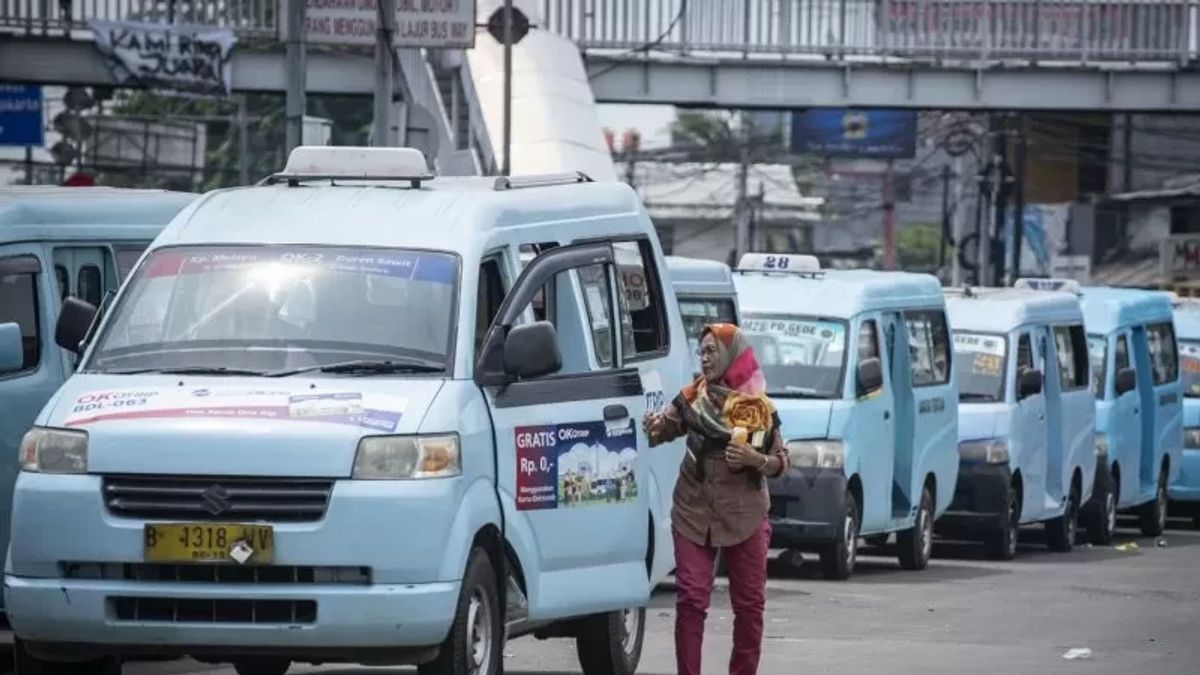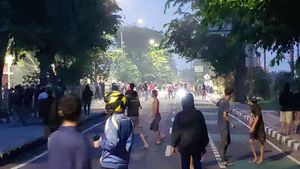JAKARTA - Transportation observer, Cecep Handoko assesses the cancellation of the plan to separate male and female seats in public transportation by the DKI Jakarta Provincial Government is the right thing.
Because, according to Cecep, the separation of male and female passenger seats is not necessarily effective in preventing sexual harassment.
"We appreciate the policy of canceling the separation of male and female seats in the angkot. The policy of segregating passenger seats has not been effective in preventing sexual harassment," Cecep said in his statement, Thursday, July 14.
Cecep views that the DKI Transportation Department is sufficient to strengthen the existing policies for handling the safety of public transport passengers.
Strengthening of existing policies is strengthened. So the space for sexual harassment in public spaces is getting narrower," said Cecep.
Currently, the DKI Provincial Government has established the Friends of Women and Children POS (POS SAPA) in the Mode of Transportation which is equipped with a complaint number 112. The officers who serve the complaint number are claimed to have been trained in handling related cases.
The SAPA POS facilities are already available at 23 Transjakarta bus stops, 13 MRT stations and 6 LRT stations. In the future, POS SAPA will continue to be added, including reaching angkot services.
"In the future, the number of POS SAPA must continue to be increased in order to reach public transportation services, as well as CCTV in public transportation that is integrated into DKI Jakarta's smart city control room," said Cecep.
"Then the training for Jaklingko drivers specifically for public transportation in carrying out efforts to prevent early crime also needs to be strengthened," he added.
Previously, the DKI Jakarta Transportation Agency (Dishub) canceled the application of segregation of seats between men and women in angkot. According to the Head of the DKI Jakarta Transportation Agency, Syafrin Liputo, this policy cannot be implemented at this time.
"Taking into account the existing conditions in society, the discourse on the separation of male and female passengers in angkot cannot be implemented at this time," Syafrin told reporters, Wednesday, July 13.
One way is to review the plan for the procurement of city transportation (angkot) specifically for women. "DKI Jakarta Transportation Agency will make comprehensive regulations for angkot and public transportation in Jakarta, including further reviewing ideas related to angkot or microtrans specifically for women," said Syafrin.
In addition, Syafrin also requires every public transportation in Jakarta to put a sticker showing the emergency number as a complaint of harassment, 112, in a place that is clearly visible to all passengers.
The English, Chinese, Japanese, Arabic, and French versions are automatically generated by the AI. So there may still be inaccuracies in translating, please always see Indonesian as our main language. (system supported by DigitalSiber.id)













